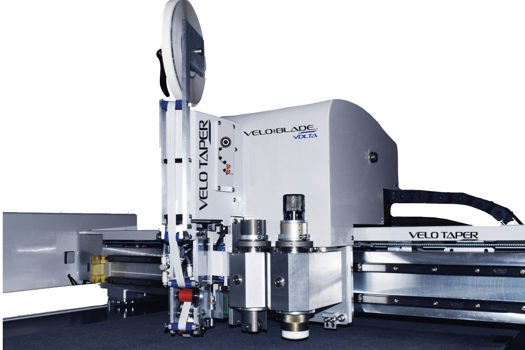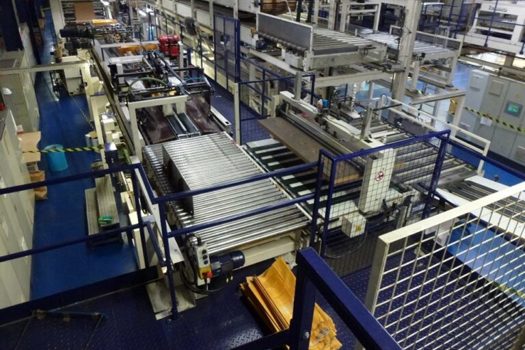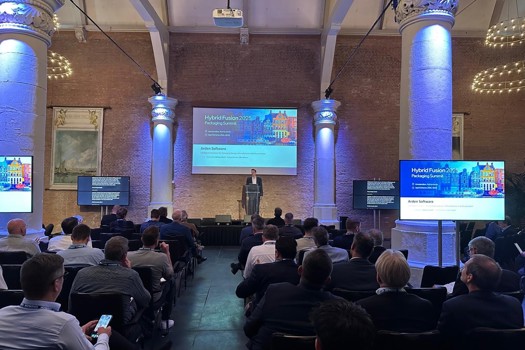The show, which took place at the Palais de Tokyo on 25 January, was the product of a three-year collaboration between the designer and manufacturer to find more sustainable methods of making clothes.
The dry recycling machinery disintegrates cloth before recombining it by pummeling it into a sort of thin felt, using only a very small amount of water, especially in comparison to traditional, water-intensive recycling processes.
Hitoshi Igarashi, Seiko Epson’s executive officer, said: “Although in its early stages, Epson believes its dry fibre technology combined with pigment ink digital printing could offer the fashion industry a much more sustainable future, significantly reducing water use while allowing designers the freedom to fully express their creativity.”
The collection on display started life - its second life - as around 140kg of mixed waste of clothes abandoned in the desert in Kenya, found by Nakazato on a trip to understand the consequences of fashion industry wastefulness. Approximately 150-200 tonnes of textiles are sent to Africa daily as waste, according to a 2022 Greenpeace report.
Through its new dry fibre technology, however, Epson was able to produce about eight and a half kilograms of mixed cotton sheet roll, and around 30 kilograms of unknown mixed sheet - all told, around 50 square metres of material.
The material was then printed in Epson’s Monna Lisa ML-8000 digital direct-to-fabric press.
Epson’s dry fibre cloth recycling prototype, while several years of development from commercial availability, was built following the success of the Japanese manufacturer’s PaperLab paper recycling system, which uses the same general principle to function.
The PaperLab disintegrates printed paper into fibres, before sorting out the printed fibres into waste, and the blank fibres to be pressed into fresh sheets.
In this way, the machine is able to recycle huge amounts of paper, typically producing 90% of the input volume: for every ten sheets fed in, nine are produced. A PaperLab running for six hours will produce 5,700 sheets of recycled A4 sheets.
The machine, first launched in 2016, uses significantly less water than traditional pulping techniques, with the only water usage being as part of the dehumidification process of the machine.
According to Bruno Rost, Epson’s corporate PR manager for Europe, Epson has hatched plans to launch a smaller, cheaper version of the PaperLab in 2024, that will cost around €100,000 rather than €200,000.
“I think that then becomes a very viable proposition for offices,” he said.










